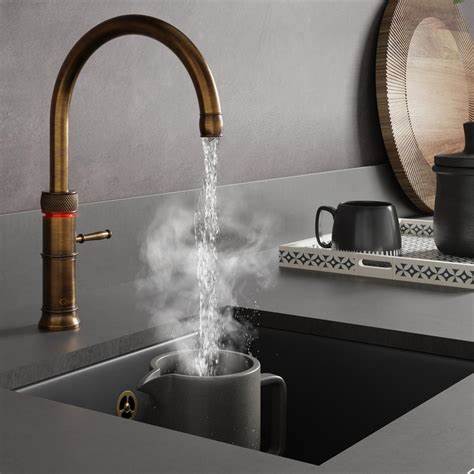
Hot Taps - Are they worth it?
Share
Hot taps are becoming increasingly popular in modern kitchens, but are they really worth the investment? Let's dive into the pros and cons of hot taps to help you decide if they are the right choice for your home.
Convenience at Your Fingertips
One of the biggest advantages of hot taps is the convenience they offer. Imagine having instant access to steaming hot water for your tea, coffee, or cooking needs with just a simple touch of a button. No more waiting for the kettle to boil or running the tap for minutes to get hot water - hot taps provide hot water on demand, saving you time and energy.
Energy Efficiency
Hot taps are designed to be energy efficient, which can help you reduce your energy bills in the long run. By delivering hot water at the desired temperature instantly, hot taps eliminate the need to heat excess water in a traditional kettle or boiler, ultimately saving energy and reducing your carbon footprint.
Cost Considerations
While hot taps offer convenience and energy efficiency, they do come with a higher upfront cost compared to traditional kettles or boilers. It's important to weigh the initial investment against the long-term savings on energy bills to determine if hot taps are a cost-effective choice for your household.
Installation and Maintenance
Installing a hot tap may require professional assistance, especially if you need to connect it to your existing plumbing system. Additionally, regular maintenance is essential to ensure the optimal performance of your hot tap. Consider these factors when deciding if hot taps are worth it for your home.
The Verdict
Ultimately, the decision to invest in a hot tap comes down to your personal preferences and lifestyle. If you value convenience, energy efficiency, and are willing to make the initial investment, hot taps can be a worthwhile addition to your kitchen. However, if you are satisfied with your current setup and don't see the need for instant hot water, sticking with traditional methods may be the better choice for you.
Are hot taps worth it? The answer depends on your individual needs and priorities. Consider the pros and cons outlined above to make an informed decision that aligns with your lifestyle and budget.
